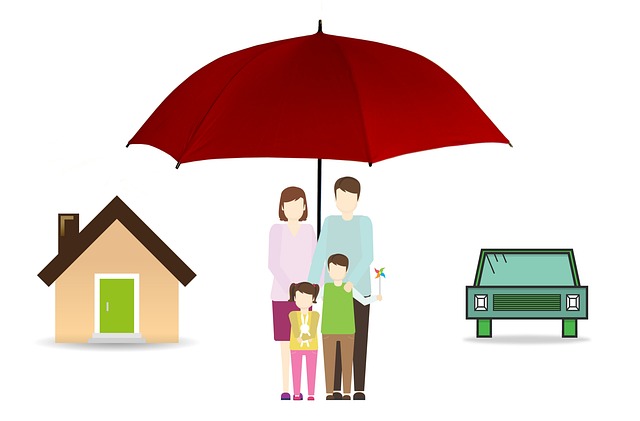Pro Bono Lawyers: Full Guide for Your Legal Assistance Needs
Pro bono legal services play a crucial role in ensuring access to justice for individuals who cannot afford traditional legal representation. These services, provided by lawyers without charge, address a wide range of legal issues and have a significant impact on both individuals and the legal system as a whole. This comprehensive guide explores the world of pro bono lawyers, their services, and how to access them when in need of legal assistance.

What is driving the global demand for pro bono legal services?
The increasing demand for pro bono legal services worldwide stems from several factors. Economic disparities, rising legal costs, and complex legal systems have created a significant gap between those who can afford legal representation and those who cannot. Additionally, global crises, such as the COVID-19 pandemic, have exacerbated existing inequalities and created new legal challenges for vulnerable populations.
Furthermore, there is a growing recognition of the importance of access to justice as a fundamental human right. This awareness has prompted legal professionals, law firms, and organizations to expand their pro bono efforts to address unmet legal needs across various communities and jurisdictions.
What are the common areas of law covered by pro bono services?
Pro bono lawyers offer assistance in a wide range of legal areas, addressing the diverse needs of individuals and communities. Some of the most common areas include:
-
Family law: Divorce, child custody, domestic violence, and adoption cases
-
Housing law: Eviction defense, tenant rights, and landlord-tenant disputes
-
Immigration law: Asylum cases, visa applications, and deportation defense
-
Criminal law: Post-conviction relief, expungement, and appeals
-
Civil rights: Discrimination cases, voting rights, and police misconduct
-
Consumer protection: Debt collection defense, bankruptcy, and fraud cases
-
Employment law: Wage theft, workplace discrimination, and wrongful termination
-
Environmental law: Climate change litigation and environmental justice cases
These areas represent just a fraction of the legal matters addressed by pro bono lawyers. Many attorneys also take on cases in specialized fields or emerging areas of law to meet the evolving needs of their communities.
How do pro bono services impact the legal system?
Pro bono legal services have a profound impact on the legal system and society at large. By providing access to justice for underserved populations, these services help to:
-
Reduce inequality: Pro bono work helps level the playing field by ensuring that individuals have access to legal representation regardless of their financial situation.
-
Improve efficiency: By assisting self-represented litigants, pro bono lawyers help courts operate more efficiently and effectively.
-
Enhance public trust: When more people have access to legal assistance, it increases confidence in the legal system and promotes the rule of law.
-
Identify systemic issues: Pro bono cases often reveal broader societal problems, leading to advocacy efforts and policy changes.
-
Promote professional development: Engaging in pro bono work allows lawyers to gain valuable experience, develop new skills, and expand their professional networks.
-
Foster a culture of service: Pro bono work encourages legal professionals to give back to their communities and promotes a sense of social responsibility within the legal profession.
How can individuals access pro bono legal services?
Accessing pro bono legal services requires knowing where to look and understanding the eligibility criteria. Here are some steps to find pro bono assistance:
-
Contact local legal aid organizations: These nonprofit organizations often provide free legal services to low-income individuals.
-
Reach out to bar associations: Many state and local bar associations have pro bono programs or can provide referrals to pro bono lawyers.
-
Check with law school clinics: Many law schools operate legal clinics that provide free services to the community while training law students.
-
Explore online resources: Websites like ProBono.net and LawHelp.org offer directories of pro bono services and legal information.
-
Inquire at courthouses: Some courts have self-help centers or pro bono programs that can provide assistance or referrals.
-
Contact local nonprofits: Organizations focused on specific issues (e.g., domestic violence, immigration) may offer or know of pro bono legal services in their field.
What are the challenges and limitations of pro bono legal services?
While pro bono legal services provide invaluable assistance to many, they face several challenges and limitations:
-
Limited resources: The demand for pro bono services often outpaces the available resources and volunteer lawyers.
-
Geographic disparities: Rural areas and smaller communities may have fewer pro bono resources compared to urban centers.
-
Eligibility restrictions: Many pro bono programs have strict income requirements, leaving some individuals in the “justice gap” – too poor to afford a lawyer but not poor enough to qualify for free services.
-
Complexity of cases: Some legal matters may be too complex or time-consuming for pro bono representation, limiting the types of cases accepted.
-
Lack of awareness: Many individuals who could benefit from pro bono services may not know they exist or how to access them.
-
Time constraints: Lawyers balancing pro bono work with paid cases may have limited availability, potentially leading to delays in case resolution.
Pro bono legal services are an essential component of the justice system, providing critical assistance to those who would otherwise be unable to access legal representation. By understanding the scope, impact, and availability of these services, individuals can better navigate the legal system and advocate for their rights. As the demand for pro bono services continues to grow, it is crucial for legal professionals, organizations, and policymakers to work together to expand and improve access to justice for all.




